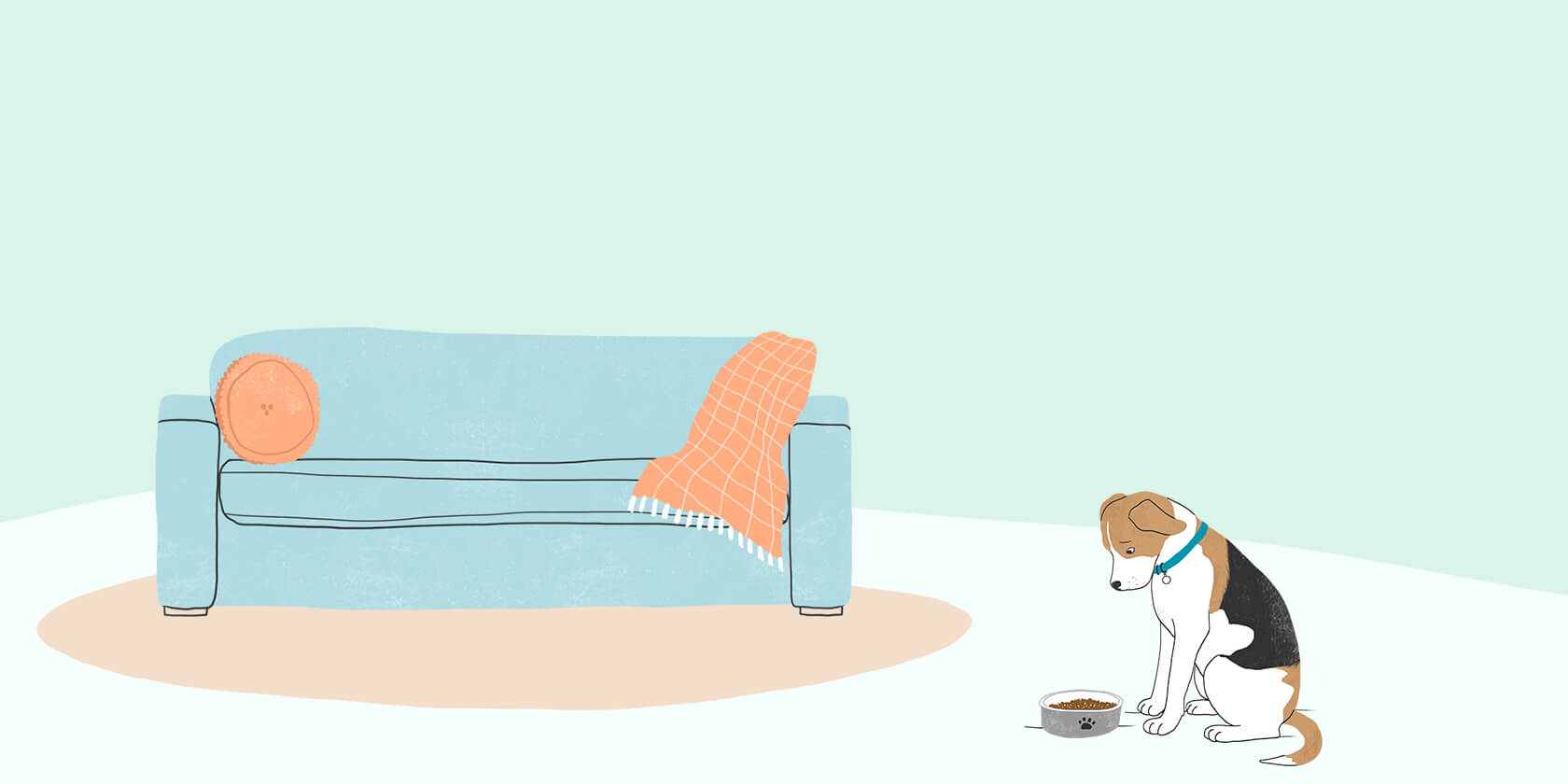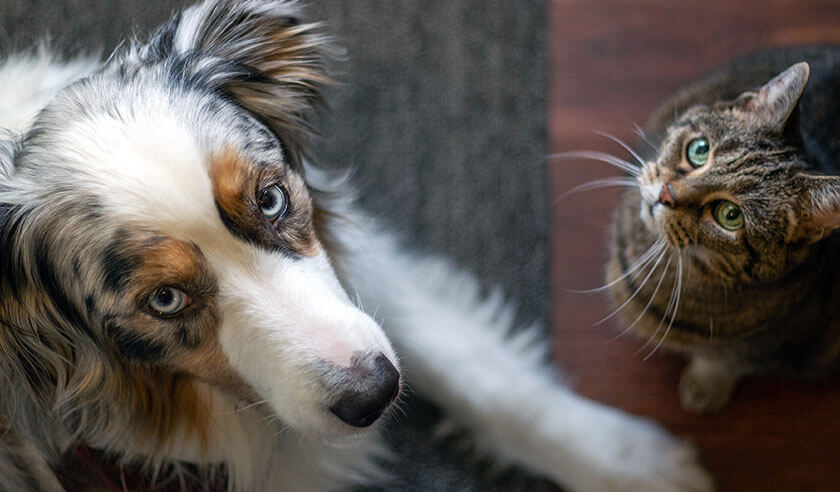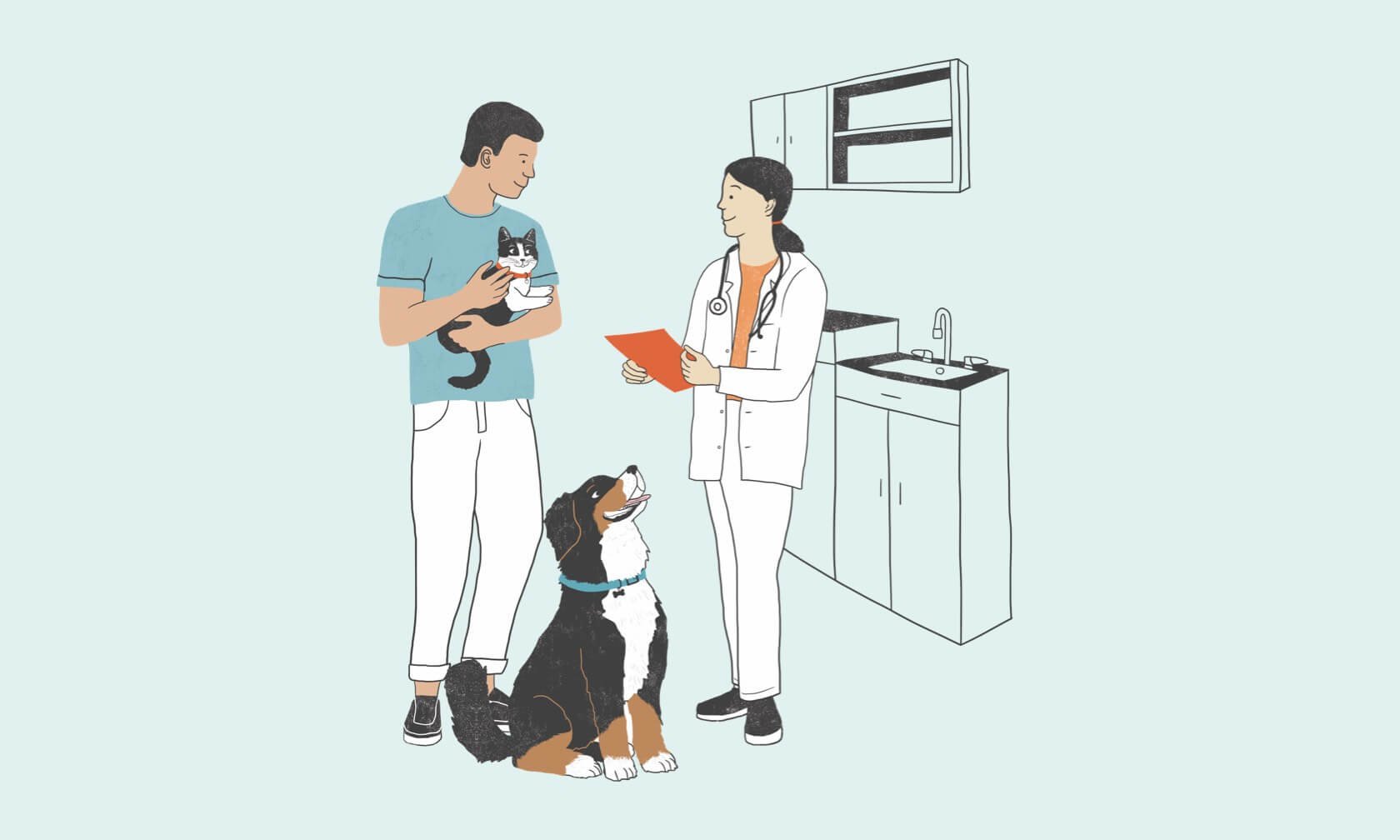When your dog experiences stress, it can profoundly affect their health and well-being. Why? As with people, stress plays a big part in their digestive function. When dogs with colitis experience stress, it causes inflammation within the gastrointestinal tract which reduces their immunity, and their gut biome becomes imbalanced. This is called stress colitis (and it’s no fun for your dog or you).
Understanding stress colitis, its symptoms, and ways to treat (or better yet, avoid) it will help your dog feel much better.
Understanding Colitis in Dogs
Colitis is a broad term referring to inflammation of the colon or large intestine. Several factors can cause colitis, including:
- Intestinal worms or other parasites
- Irritable bowel syndrome (IBS)
- Food intolerances or allergies
- Gastrointestinal bacterial or fungal infections
- Eating high-fat foods, table scraps, or going through sudden diet changes
Colitis symptoms come and go. Stress can trigger these flare-ups, which is referred to as stress colitis. Even though the original cause of the colitis may not be stress-related, stress can bring on or exacerbate bouts of colitis symptoms. And it’s not just “bad” stress — there are “good” things that can cause stress as well. Some potential stressors include:
- Emotional (Both Positive and Negative)
Fear, anxiety, trauma, depression, changes in routine, and excitement from play time, visitors, car rides, or new experiences - Physical
Exercise, pain, injury, or trauma - Environmental
Extreme temperatures, pollutants, or allergens - Biological
Physical changes and discomfort from bacteria, fungi, viruses, or parasites - Chemical
Physical changes and discomfort from toxins, herbicides, pesticides, or dust - Dietary
High-fat foods, inconsistent diet, or difficult-to-digest foods
To diagnose your dog with colitis, your veterinarian will perform a physical examination and run diagnostic tests. These tests may include a stool sample (fecal test) to check for intestinal parasites, blood work, radiographs, and possibly a colon biopsy.

Symptoms of Stress Colitis in Dogs
Though each dog is different, and the symptoms of colitis can vary, the common signs include:
- Soft and loose stool
- A change in stool color
- Stool with bright specks of blood
- Increased pooping
- Straining to poop
- Excess gas
- Pain when pooping
- Changes in eating habits
- Abdominal pain
- Lethargy
If colitis goes untreated, it can result in a decrease or loss of appetite, weight loss, dehydration, and poor skin and coat condition.
How to Treat Your Dog’s Stress Colitis
Your veterinarian will develop a treatment plan for the original cause of the colitis, as applicable. They can also educate you on the best ways to manage stress colitis flare-ups when they happen.
Treatment for stress colitis may include fasting for 12-24 hours (Although water should be available at all times). This helps give the digestive tract a chance to rest and helps to lessen the inflammation. After fasting, feed a bland and highly digestible diet and continue for at least 4-5 days after symptoms resolve completely. A prescription GI diet from your veterinarian is a simple option, or you can prepare plain, boiled, boneless, skinless chicken and plain boiled rice. Adding dietary fiber is also helpful, such as unsweetened and unflavored Metamucil. Give one teaspoon for smaller dogs and up to three teaspoons for larger dogs, once or twice daily, mixed into food. Ask your veterinarian what bland diet and fiber supplementation options are best for your dog’s condition.
Your veterinarian may prescribe anti-inflammatories, antibiotics, or dog-specific anti-diarrheal meds. Never give your dog over-the-counter human anti-diarrhea medications, as these can do more harm than good. If dosed incorrectly, they can be toxic to your dog.
Generally, with stress colitis, flare-ups subside in 3-5 days. This does not mean the colitis itself is cured though, and future bouts of stress colitis are likely (especially for dogs who struggle with stress). It’s important to regularly have your dog evaluated by your veterinarian and take steps to prevent or lessen stress where possible.
If signs are severe enough, or if treatment is delayed, and your dog becomes ill and dehydrated, they may need to be hospitalized and given supportive care with intravenous fluids and medication.
Ways to Prevent Stress Colitis in Your Dog
While it isn’t always possible to prevent stress colitis flare-ups, there are several steps that you can take to help minimize them and manage stress.
- Avoid stressful events or situations as much as possible.
- Give calming supplements before and during stressful events that can’t be avoided.
- Use environmental calming tools such as music or dog calming pheromone diffusers, collars, or sprays.
- Give prebiotics and probiotics to help keep gut microflora healthy and boost their immune system to better handle stress.
- Start a highly digestible and bland diet or a prescription gastrointestinal diet before a stressful event.
- Avoid overexertion during exercise or sporting events.
- Speak to your veterinarian about medications that can help your dog handle stressful situations.
- Speak with a certified trainer about desensitizing and conditioning your dog to handle stressors.
There are also measures you can take to prevent primary colitis in the first place, including:
- Routinely have your veterinarian check your dog for intestinal parasites.
- Talk to your veterinarian about parasite preventatives.
- Always provide your dog with a well-balanced diet.
- Avoid any sudden dietary changes.
- Avoid giving your dog table scraps, fatty foods, or hard-to-digest treats like rawhides.
- Monitor your dog outdoors to ensure they don’t eat items off the ground.
ZPC-01940





